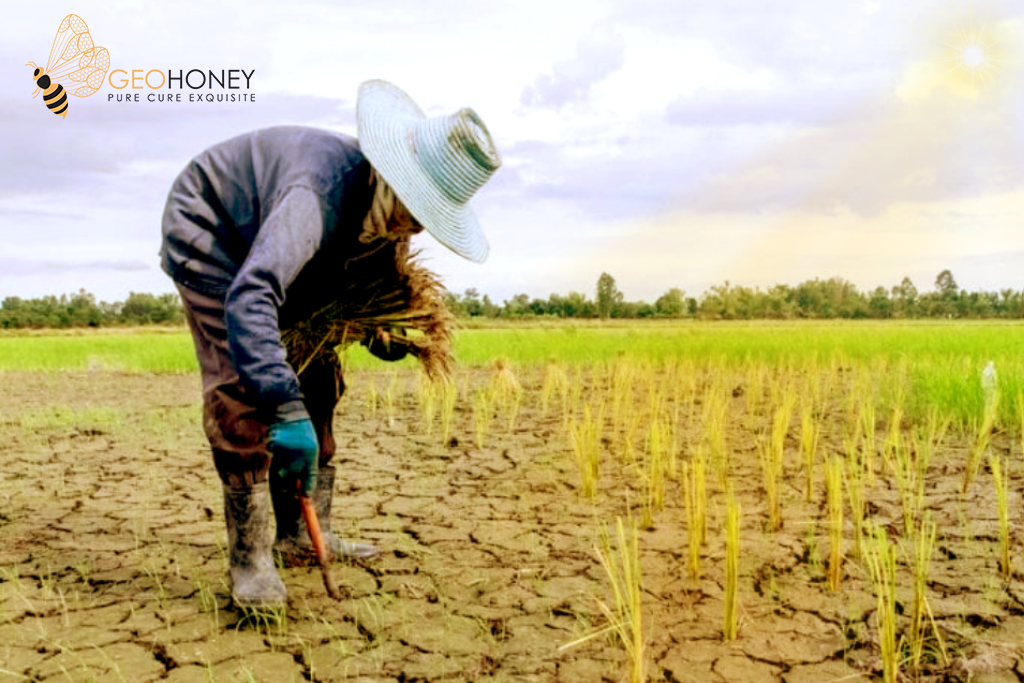- Tokyo: 19:29
- Singapore: 18:29
- Dubai: 14:29
- London: 10:29
- New York: 05:29
How Rising Temperatures Will Impact Our Food Supply

As temperatures rise around the world, the reliability of food production decreases. Climate change is already impacting the food supply globally, from crops and livestock health to how effectively farmers can operate.
A disruption in the food supply will have immediate and lasting effects on the growing global population. Governments and organizations worldwide must take action to address food production issues and protect the most vulnerable people.
High Temperatures Limit Crop Growth
One of the major issues facing farmers in recent and coming years is the impact of rising temperatures on crop growth. While crops thrive in various environments, changes like an increase in temperature can severely limit their ability to survive.
Higher temperatures stunt plant growth, preventing crops from maturing or growing at all. While this change may allow farmers to grow warm-weather crops in previously inaccessible areas, it hurts producers growing traditional crops on their established farms. A recent NASA study reported climate changes could lead to a 24% decrease in maize crop yield by 2030.
Changing temperatures also disrupt well-established planting schedules. Much of farming is based on nature’s patterns. As higher temperatures and extreme weather alter the length of the growing and harvest seasons, farmers will struggle to keep up with the frequent changes.
Droughts and Floods Damage Crop Land
Rising temperatures also impact weather patterns and precipitation, which can make or break an entire season of crop growth.
While plants growing in hotter climates tend to grow longer and larger, requiring more water, climate change means they might get much more — or way too little — than they bargained for. Extreme weather like severe droughts and floods are more common in the aftermath of climate change, either depriving crops of much-needed hydration or oversaturating them.
Problems for Farmers
The farmers and other agricultural workers who make up the food production industry are under immense pressure in the face of climate change. Crop yield and reliability are down, trade barriers are up and farmers bear the burden. Extreme weather conditions also make practical farming processes more difficult, such as floods and landslides destroying farmland.
Addressing food insecurity is a significant priority for the world community moving forward, which has led to efforts like the UN’s World Food Programme and associated partnerships. These organizations must work to support farmers who make up the backbone of the food supply chain.
Dangers to Livestock
Rising temperatures impact more than crops and plants — livestock is also susceptible to serious hazards resulting from severe weather. As the temperature increases, cattle are at a higher risk of heat stress, which can be deadly if left untreated. Disease is also more rampant in hot climates as parasites, fungi and other dangerous organisms thrive in the heat.
Food production issues may affect livestock as well. If humans face food shortages and supply chain complications, animal feed reserves will likely deplete.
A Reduction in Nutritional Value
Even the crops that survive fluctuating temperatures and severe weather conditions will face repercussions from climate change. Carbon dioxide in the atmosphere warms the planet and reduces the nutritional value of foods that absorb it as they grow.
Higher carbon dioxide levels can lead to decreased amounts of zinc, magnesium, iron, protein and other essential nutrients in crops. A limited supply of less-nutritious food will create troubling complications for a growing global population.
Higher Temperatures Lead to Greater Food Instability
Climate change’s impact on the food supply is a serious threat to food security around the world. Addressing these challenges will require global solutions that reduce the harms of increasing temperatures on food production.
Writer: Jane Marsh
https://janesmarsh.com/




How everything is related to one another. Nicely written